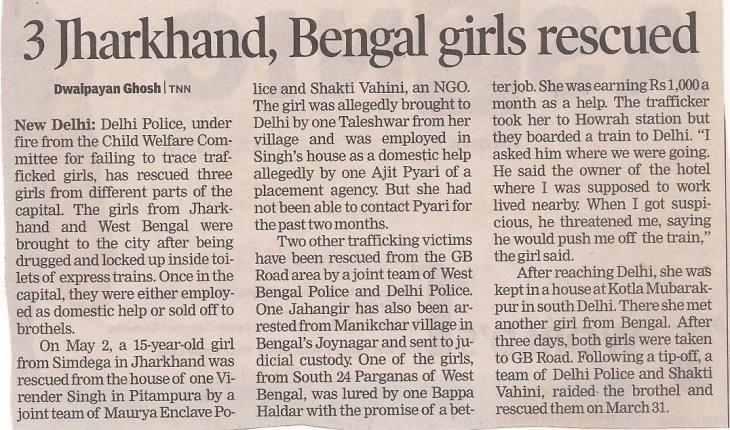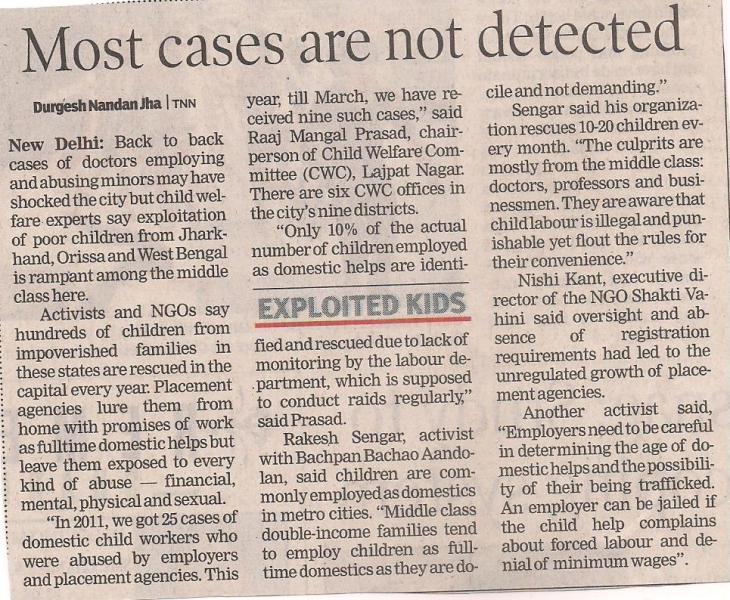PUBLISHED IN THE TELEGRAPH BY ANANYA SENGUPTA
New Delhi, Nov. 5: The death of a household help at a Bahujan Samaj Party MP’s home appears to be a fresh pointer to a growing pattern of 24×7 domestic hands falling prey to abuse by well-to-do employers.
Rakhi, a 35-year-old maid from Bengal’s Dum Dum, was found dead at Jaunpur MP Dhananjay Singh’s home with injuries on the head, chest, arms and stomach. The MP’s dentist-wife Jagriti has been arrested for alleged torture.
This is the latest in a series of cases in the capital in which 24-hour domestic helps have been ill-treated and tortured by educated and moneyed employers.
As recently as October 1, Vandana Dhir, a senior executive with a French MNC, was arrested on charges of abusing her minor maid, who was from Jharkhand. The teen was reported to have been beaten with brooms, attacked with knives, kept half-naked to block her from fleeing, not given leave to go home and not paid a single month’s salary.
“In the last two years, this has become a trend of sorts — upper-class households resorting to violence against maids. The rich do not understand the compulsions that drive a young girl to leave home to seek work,” said Rishi Kant of Shakti Vahini, the organisation that rescued the girl a month ago.
“Cases like these will increase as the economy spirals downwards. These people don’t know what it is to have less. They will show their desperation on their maids, who anyway are like dirt to them.”
Last year, a doctor couple was taken to court for locking up their 13-year-old maid, who was from Jharkhand, in their house while they were holidaying in Thailand. In 2011, a senior MCD officer and his wife had locked up their minor maid before going to a trade fair; the same year, an industrialist went abroad for a week, handing his help Rs 20 for daily expenses.
According to a registered staff-training and placement agency, around 70,000 families look for household helps in Delhi and Gurgaon at any point of time.
According to rough estimates, there are about 50 million domestic workers who are not covered under any law, such as the Minimum Wages Act, 1948, Maternity Benefit Act, 1961, or the Workmen’s Compensation Act, 1926.
The Domestic Workers (Registration, Social Security and Welfare) Act, 2008 — amended in 2010 — is still pending. Such workers have, however, been brought within the ambit of the Sexual Harassment of Women at Workplace (Prevention, Prohibition and Redressal) law that was passed this year.





